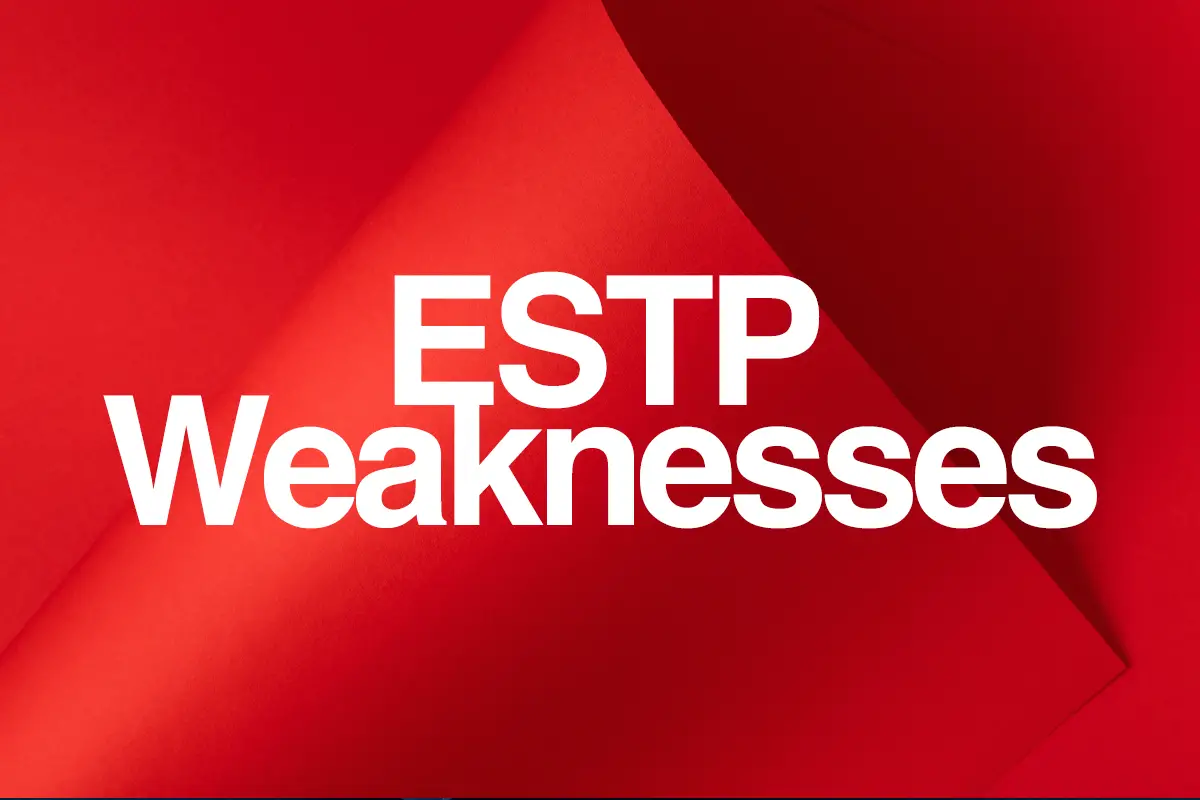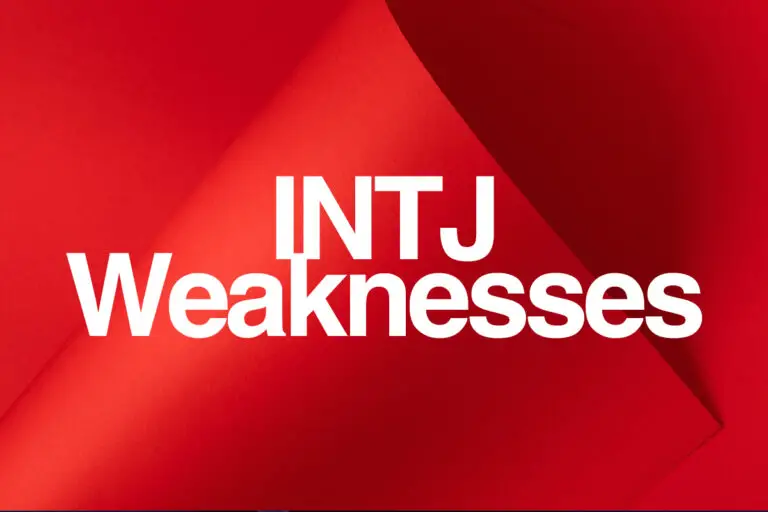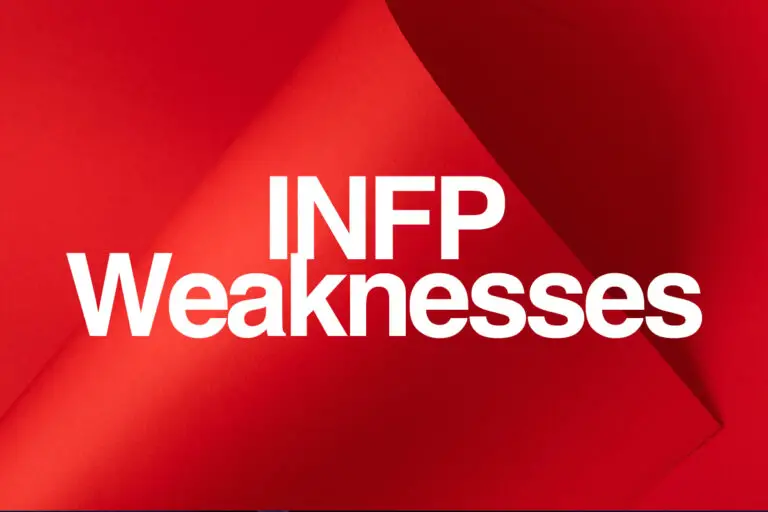7 Major ESTP Weaknesses & How to Manage Them (2024)
ESTPs are confident and social individuals with many great attributes, but like every other personality type, they also have some shortcomings.
Being aware of your flaws and having the will to acknowledge and to overcome them is a positive trait in itself.
The two major ESTP weaknesses are that they are impatient and insensitive to other people’s emotions.
ESTP Weaknesses
1. Impatient
ESTPs are easily distracted, lack patience, and jump straight into the action, which is a problematic characteristic.
The Sensing trait, along with the perceiving trait, makes them active-passive, which is why they have a hard time sitting still and are impatient.
An ESTP flaw is when something does not work out, they get frustrated and give up too easily on things that require patience.
They have a hard time seeing the big picture and understanding that there are steps that need to be taken before an outcome can be reached.
How to Deal With it
- ESTPs need to accept their present circumstances and develop a tolerance for being a bit uncomfortable so that they do not rush things and make wrong decisions.
- They may need to force themselves to stay in a stagnant position for some time so that the best opportunities eventually show up.
- When ESTPs are impatient and feel the need to rush things, they should remind themselves of the last time they lost patience and what its repercussions were.
2. Unorganized
An ESTP weakness is that they are not good at keeping things in order and are often distracted by new and exciting things.
ESTPs like to keep their options open because they tend to have a preference for the Perceiving (P) trait over the Judging (J) trait, making them messy and unorganized.
ESTPs want to explore all options available and take risks, which can lead them far away from their original plans.
This ESTP negative trait may severely affect their lives and prohibit them from pursuing and achieving larger goals.
How to Deal With it
- To achieve personal growth, firstly, they need to organize their time, make a routine and make sure they follow that routine rigorously.
- ESTPs should surround themselves with organized people, so they are regularly reminded that they need to work on it and they also get the required guidance.
- Since ESTPs love challenges, they should turn organising things into a challenge so that they are motivated to improve. They should also make sure that everything they own has a fixed resting spot.
3. Lack of Compassion
ESTPs may give off the impression that they are very friendly and outgoing, but they lack compassion which is an ESTP weakness in relationships.
They have a preference for the Thinking (T) trait over the Feeling (F) trait which draws them toward logic and away from emotions.
ESTPs view life from their own perspective and are not very good at taking into account the feelings and perspectives of other people which often causes conflicts.
This negative quality may affect their relationship with colleagues and even family if they are not considerate of their emotions and do not take into account their input while making a decision.
How to Deal With it
- ESTPs need to develop compassion and to do that, firstly, they need to get in touch with their own feelings and look for things that delight them.
- There is room for improvement if ESTPs start maintaining a gratitude journal in which they write down three things they are grateful for every day, no matter what.
- They can also list all the things that make them happy, as it will force them to think about the good things in life.
4. Taking Criticism
Another ESTP personality weakness is that they are not naturally good at listening to criticism and they feel frustrated by it.
The reason behind it is that they want to do well and do not want to be told that they are struggling.
People with the ESTP personality have a hard time taking Criticism and it is at these moments that they need to resist the natural impulsive reaction.
ESTPs are tough and pragmatic, but in a moment of weakness, the criticism might have a greater impact because the ESTP will be more vulnerable.
How to Deal With it
- It is crucial to remember that no matter how frustrated an ESTP may get, they should not take the criticism personally.
- ESTPs are naturally outgoing and friendly people, so they should not feel like their worth is tied to their performance in any activity.
- When an ESTP does take Criticism well, it allows them to adjust or adapt as necessary and improve upon their personality weakness over time.
5. Judgemental
ESTPs are opinionated individuals who believe in something fully, but the potential problem area is that they think that their belief or way of life is the only correct way of living or doing something.
People with the ESTP personality judge people for their lifestyle and their interests, so it’s quite hard to get them to believe something and to commit to a new way of life.
Not only people and their perspectives, ESTPs also prejudge situations on the basis of first impressions and may make faulty assumptions.
This is a major ESTP problem and they miss out on so many experiences and sacrifice many relationships.
How to Deal With it
- ESTPs need to observe their way of thinking and take note of what triggers their judgemental thoughts.
- To overcome this weakness, ESTPs need to take some time to form an opinion about a situation or a person because first impressions can be misleading.
- Even if they find their point of view to be different from somebody else’s, they should just accept that there can be different ways to look at the same thing.
6. Authoritative
Not just judging people for what they like or do but the habit of pressuring them to function the way they like is a notable weakness of ESTP personality.
ESTPs are naturally social and can be very easy to get along with until something you do or want that conflicts with their firm opinions.
They tend to force their opinions on their subordinates as well as their colleagues, which may not be received well at all times.
ESTPs find it challenging to communicate with or befriend somebody who does not readily accept what they say.
How to Deal With it
- They should try to accept the notion that there can be different ways to look at things and also different ways and preferences to live life.
- ESTPs should for once try and look at the alternatives and then make out for themselves which would be the better choice.
- They should ask for feedbacks, learn to admit when they are wrong, and know that giving up control is not as bad as they think.
7. Impulsive
ESTP problems include their tendency to not think things through before they act, which can lead to some problems in life, both for the ESTPs and for those around them.
People with the ESTP personality have a preference of the Perceiving (P) trait over the Sensing (S) trait which makes them spontaneous and if unregulated they become hasty.
They act spontaneously and don’t like to plan things out, but when things go out of hand, it causes stress to them and ESTPs under stress make rash or impulsive decisions.
How to Deal With it
- Although ESTPs do not like planning elaborately for the future, they can still make open ended plans and fill in with the trivial details later.
- They should think before they act and if they cannot subdue their impulses, they should consider the consequences of their actions.
- ESTPs can also try practicing mindfulness and listening to calm or soothing music to overcome their impulsive urges.
FAQ
What is ESTPs weakest function?
As an ESTP, your weakest function is Introverted Intuition (Ni). This means that you tend to be more focused on the here and now, and may have difficulty understanding or interpreting concepts that are not immediately apparent.
What do ESTPs struggle with?
ESTPs struggle with having an understanding of the bigger picture, they are so focused on the trivial details that they miss out on what is actually important.
What do ESTPs fear the most?
The thing that ESTPs fear the most is lack of control or being dependent on somebody else and compromising on things they would do if they were in control.
What annoys the ESTPs the most?
ESTPs are annoyed the most when they have an argument with somebody and they pretend to be right without supporting their argument by any logic whatsoever.
What is the dark side of ESTPs?
The dark side of ESTPs is that they assume that their point of view is the only one that is correct and others are fundamentally wrong which causes conflicts on a regular basis.
What annoys people about ESTPs?
The negative ESTP characteristic that annoys people about them is that they are not considerate about other people’s emotions and may hurt them whether it is intentional or not.
What are ESTPs misunderstood as?
ESTPs are misunderstood as rude or harsh at times mostly by the gentler personality types when they are being honest and speaking their mind.
What stresses out ESTPs the most?
People with the ESTP personality are free flowing and like being impromptu making decisions on the go and they tend to get stressed out by restrictions and boundaries.
How to improve ESTP weaknesses?
ESTPs can improve on their weaknesses by overcoming their negative personality traits and practicing patience, making well informed decisions and being considerate of other people’s emotions.







